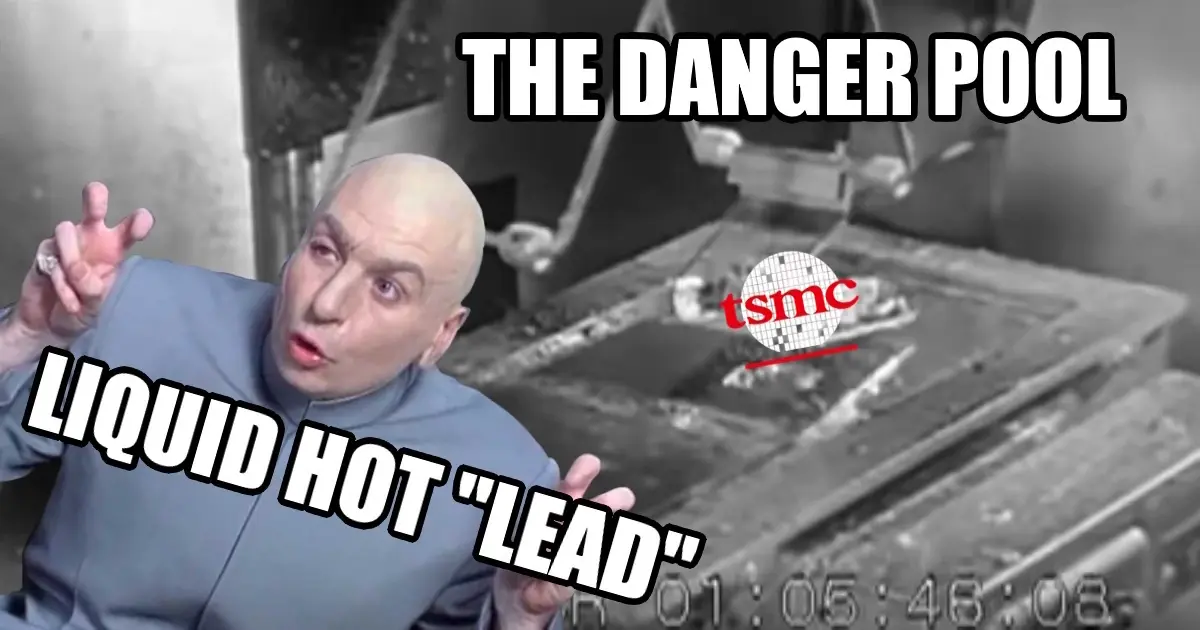Related Topics
The Toilet Mountain of Social Media
The hefty topic of U.S. funding for 'digital twin' chips research under the CHIPS Act, comparing its budget to other big expenditures.
Guard the CHIPS, New Math for Double E’s
Community feedback that led Parker to order a Bambu X1 Carbon 3D Printer, arriving any day now, S to the L to the A, “guardrails” that the U.S.
The Danger Pool
The CHIPS act is driving chip manufacturers like Texas Instruments, TSMC, and Intel to expand in the US, but there's a shortage of engineering manpower.
Other Resources
Circuit Break Podcast
Webinars
Videos
Tour MacroFab's ITAR-Compliant Facility
July 28, 2023, Episode #388
This week we’re joined by David Schild, the Executive Director of the Printed Circuit Board Association of America (PCBAA). PCBAA is a consortium of American companies supporting domestic production of printed circuit boards and the materials they are made of. An established leader and trusted advocate, Schild has over 20 years of experience managing political involvement, corporate public relations and public policy efforts for the aerospace and defense industry and advocates for the CHIPS Act and PCBS Act.
Guests:
- David Schild from the PCBAA
Intro to U.S. public policy impacting the microelectronic industry
- The impact of globalization, corporate consolidation, and reshoring
- The CHIPS Act as a model and way forward to avoid supply chain issues
- Bringing manufacturing ecosystems back to America
- The CHIPS Act’s $52 billion endowment with tax credits to motivate companies to create in America
How far can American manufacturing subsidies really go?
- “Private money follows public action”
- We’re down to single points of failure; one thing goes down, everything goes down worldwide
- Engineers don’t often get elected to Congress
- Fostering options for young Americans to follow career paths via local microelectronics
- “The things we make in America, we can invent in America”
Summary/Takeaways:
- Making PCBs relatable to the general public and politicians is crucial
- The CHIPS and PCBs acts are a good start, but not enough
About the Hosts

Parker Dillmann
Parker is an Electrical Engineer with backgrounds in Embedded System Design and Digital Signal Processing. He got his start in 2005 by hacking Nintendo consoles into portable gaming units. The following year he designed and produced an Atari 2600 video mod to allow the Atari to display a crisp, RF fuzz free picture on newer TVs. Over a thousand Atari video mods where produced by Parker from 2006 to 2011 and the mod is still made by other enthusiasts in the Atari community.
In 2006, Parker enrolled at The University of Texas at Austin as a Petroleum Engineer. After realizing electronics was his passion he switched majors in 2007 to Electrical and Computer Engineering. Following his previous background in making the Atari 2600 video mod, Parker decided to take more board layout classes and circuit design classes. Other areas of study include robotics, microcontroller theory and design, FPGA development with VHDL and Verilog, and image and signal processing with DSPs. In 2010, Parker won a Ti sponsored Launchpad programming and design contest that was held by the IEEE CS chapter at the University. Parker graduated with a BS in Electrical and Computer Engineering in the Spring of 2012.
In the Summer of 2012, Parker was hired on as an Electrical Engineer at Dynamic Perception to design and prototype new electronic products. Here, Parker learned about full product development cycles and honed his board layout skills. Seeing the difficulties in managing operations and FCC/CE compliance testing, Parker thought there had to be a better way for small electronic companies to get their product out in customer's hands.
Parker also runs the blog, longhornengineer.com, where he posts his personal projects, technical guides, and appnotes about board layout design and components.

Stephen Kraig
Stephen Kraig is a component engineer working in the aerospace industry. He has applied his electrical engineering knowledge in a variety of contexts previously, including oil and gas, contract manufacturing, audio electronic repair, and synthesizer design. A graduate of Texas A&M, Stephen has lived his adult life in the Houston, TX, and Denver, CO, areas.
Stephen has never said no to a project. From building guitar amps (starting when he was 17) to designing and building his own CNC table to fine-tuning the mineral composition of the water he uses to brew beer, he thrives on testing, experimentation, and problem-solving. Tune into the podcast to learn more about the wacky stuff Stephen gets up to.
Related Podcasts

The Toilet Mountain of Social Media
The hefty topic of U.S. funding for 'digital twin' chips research under the CHIPS Act, comparing its budget to other big expenditures.

Guard the CHIPS, New Math for Double E’s
Community feedback that led Parker to order a Bambu X1 Carbon 3D Printer, arriving any day now, S to the L to the A, “guardrails” that the U.S.

The Hot List of Tasty Chip Fabs
More manufacturers sign on to the US CHIPS Act. Will spending $53 billion help actually help out our electronic supply chain problems? Find out!

Artisan Sudo Toasters
Stephen debarks into the cold void that is linux. Will he survive the frozen sudo tundra? Adventures in Rapsberry Pis and Wiring Hardness designs!

The Danger Pool
The CHIPS act is driving chip manufacturers like Texas Instruments, TSMC, and Intel to expand in the US, but there's a shortage of engineering manpower.
About MacroFab
MacroFab offers comprehensive manufacturing solutions, from your smallest prototyping orders to your largest production needs. Our factory network locations are strategically located across North America, ensuring that we have the flexibility to provide capacity when and where you need it most.
Experience the future of EMS manufacturing with our state-of-the-art technology platform and cutting-edge digital supply chain solutions. At MacroFab, we ensure that your electronics are produced faster, more efficiently, and with fewer logistic problems than ever before.
Take advantage of AI-enabled sourcing opportunities and employ expert teams who are connected through a user-friendly technology platform. Discover how streamlined electronics manufacturing can benefit your business by contacting us today.